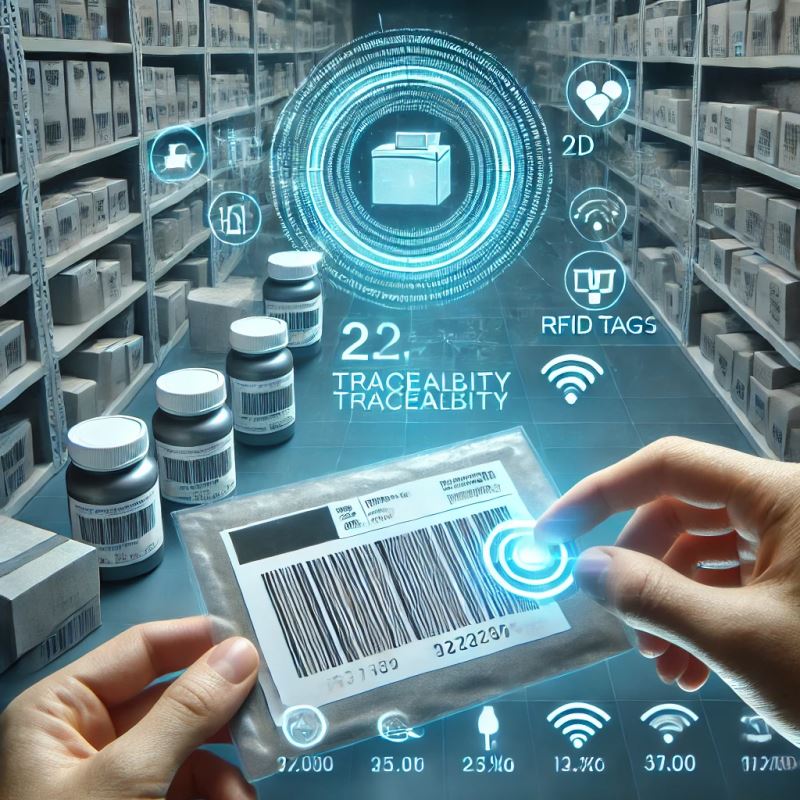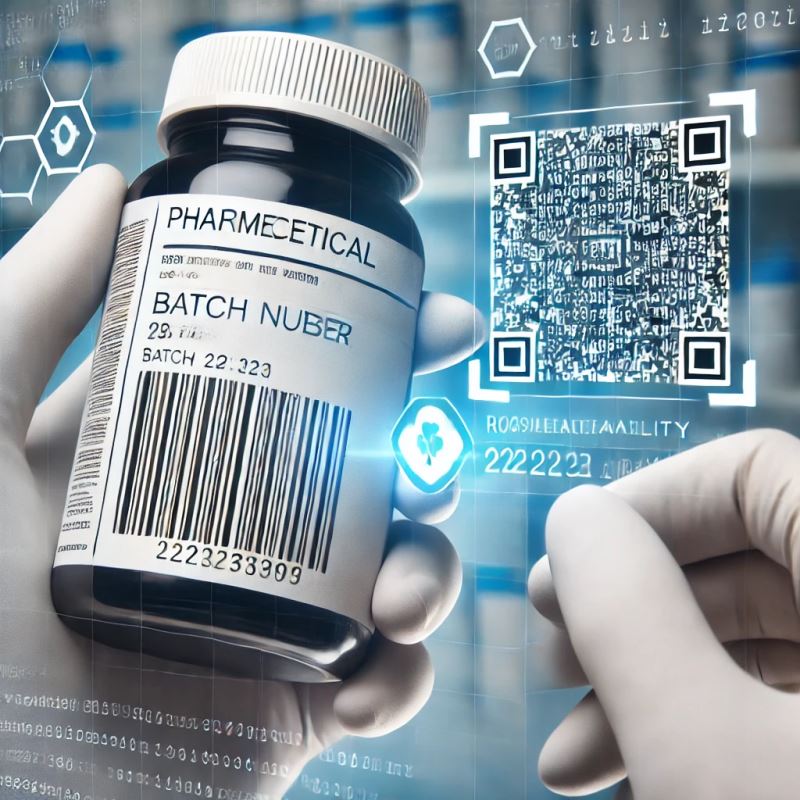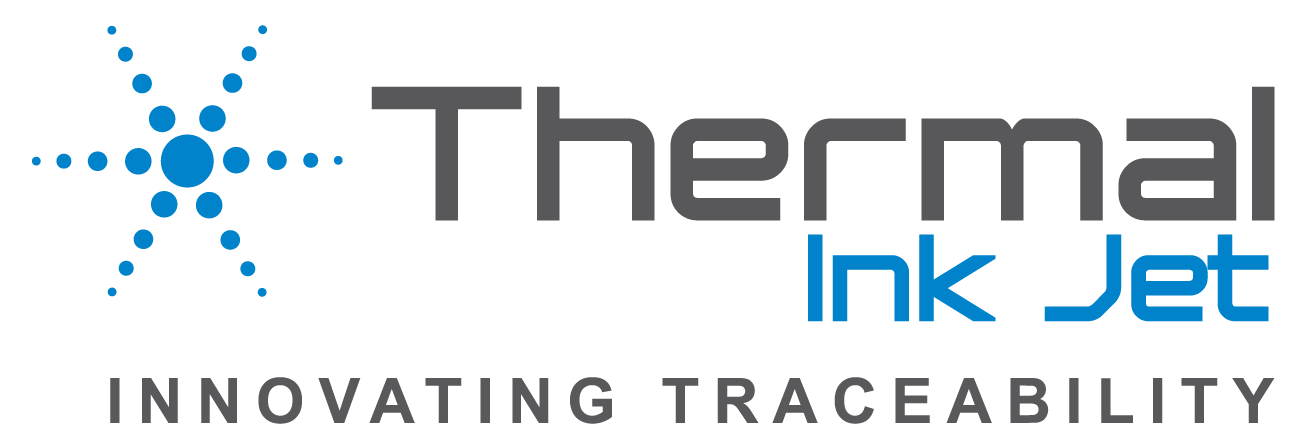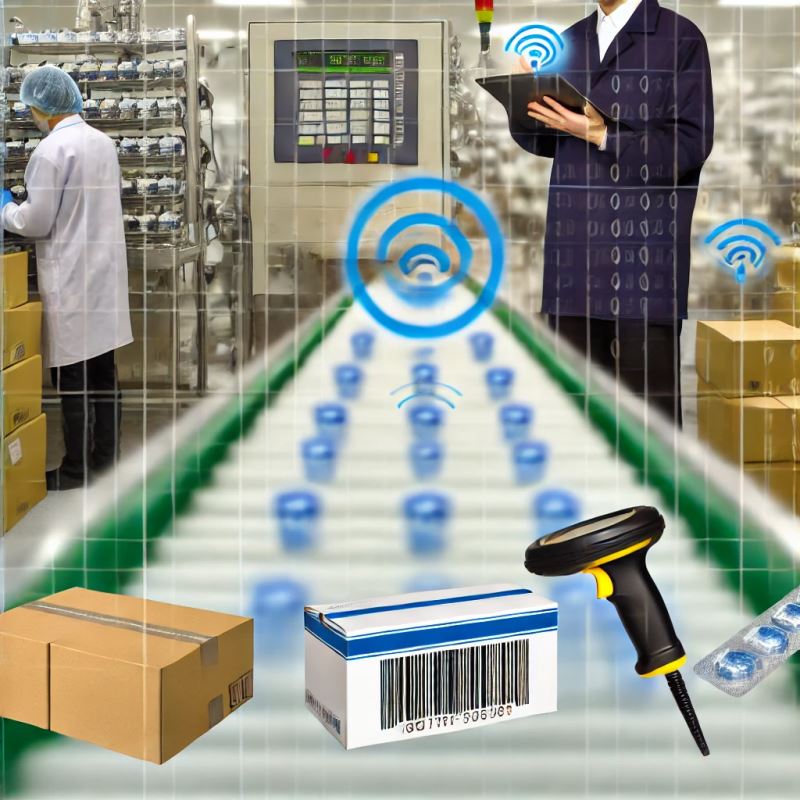Introduction
In the pharmaceutical industry, Traceability is vital for ensuring consumer safety and complying with stringent global regulations. With the increasing risks of counterfeit medicines and contamination, implementing robust traceability systems is critical to maintaining the integrity of the supply chain. Advanced technologies, including Blockchain, RFID, and 2D barcodes, are at the forefront of ensuring that every step of drug production and distribution is monitored and controlled, safeguarding public health.
The Importance of Traceability in Pharmaceuticals
Ensuring Product Authenticity and Consumer Safety
Pharmaceutical traceability plays a pivotal role in protecting consumers from counterfeit drugs. Counterfeit medicines not only undermine public health but also erode trust in the pharmaceutical industry. Traceability systems allow for the verification of authenticity and origin of every drug product by tracking it from the point of manufacture to the end consumer. This guarantees that the product reaching the consumer is genuine, properly labeled, and safe for consumption.
-
Enhancing Recall Management and Risk Mitigation
One of the critical benefits of traceability in pharmaceuticals is the ability to efficiently manage recalls. In the event of contamination or a faulty batch, traceability systems allow manufacturers and regulators to quickly identify the affected products and withdraw them from the market. This minimizes risks to public health, ensuring that unsafe products do not remain in circulation for long periods. By using technologies such as RFID and 2D barcodes, pharmaceutical companies can pinpoint the exact location of compromised batches, speeding up the recall process.

Compliance with Global Regulations
Meeting Regulatory Requirements in the US and EU
Regulatory bodies such as the FDA and the European Medicines Agency (EMA) mandate that pharmaceutical companies implement traceability systems to comply with laws like the Drug Supply Chain Security Act (DSCSA) in the United States and the Falsified Medicines Directive (FMD) in the European Union. These laws require drug manufacturers to ensure the security and integrity of the supply chain, from production to distribution. Failure to comply with these regulations can result in severe penalties, product recalls, and reputational damage.
Enabling Serialization and Track-and-Trace Technology
Under both the DSCSA and FMD, pharmaceutical companies are required to serialize products and maintain records of their movement through the supply chain. Serialization involves assigning a unique identifier to each unit of a product, which can be tracked at every stage of distribution. Technologies such as 2D barcodes and RFID tags allow pharmaceutical companies to comply with these requirements, ensuring transparency and accountability throughout the supply chain.

Leveraging Advanced Technology for Traceability
Blockchain for Enhanced Security
Blockchain technology is being increasingly adopted in the pharmaceutical industry to provide tamper-proof, transparent records of a product’s journey through the supply chain. Each transaction is recorded on a distributed ledger that cannot be altered, ensuring that the data is accurate and secure. Blockchain helps prevent fraud, reduces the risk of counterfeit medicines, and improves the efficiency of tracking products through every step of the manufacturing and distribution process.
RFID and 2D Barcodes for Real-Time Data
Technologies like RFID and 2D barcodes provide real-time visibility into the pharmaceutical supply chain. RFID tags can store detailed information about a product, such as its expiration date, lot number, and origin, while 2D barcodes allow for quick scanning and identification. These technologies enhance traceability by providing real-time data that enables manufacturers, distributors, and regulators to monitor the flow of products, ensuring that they are delivered safely and securely to consumers.

Conclusion
Pharmaceutical traceability is a vital component in ensuring consumer safety, regulatory compliance, and supply chain integrity. As technology continues to advance, solutions like blockchain, RFID, and 2D barcodes are making it easier for pharmaceutical companies to track products throughout their lifecycle, from production to distribution. By implementing robust traceability systems, pharmaceutical manufacturers not only protect consumers but also build trust in the safety and authenticity of their products. As regulations evolve, the importance of traceability in safeguarding public health will continue to grow.

